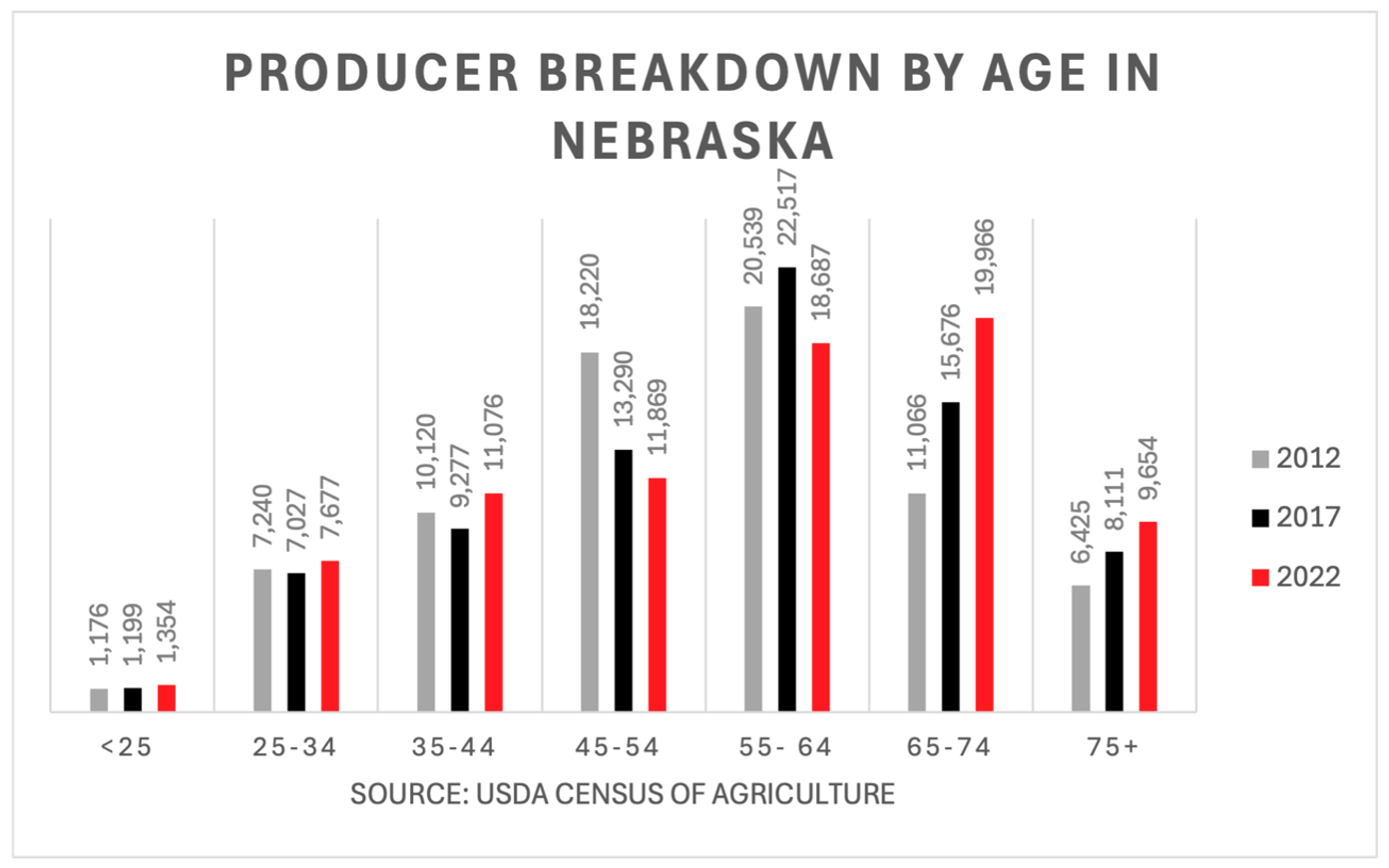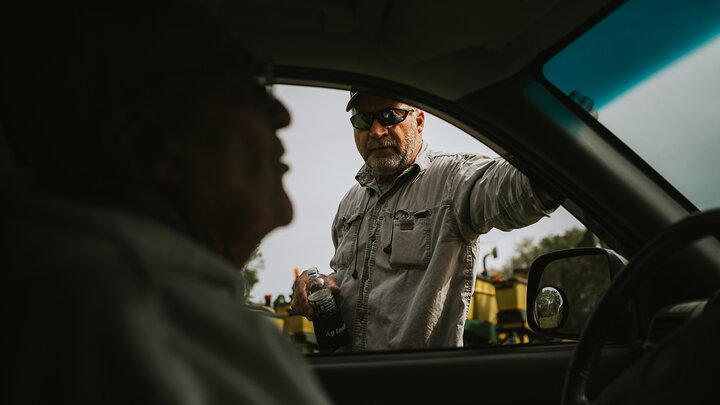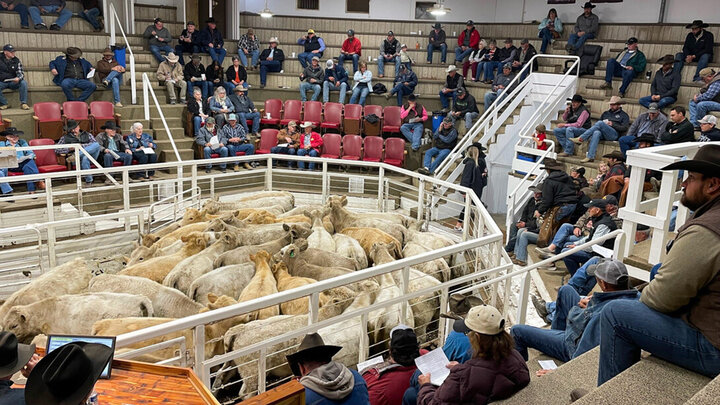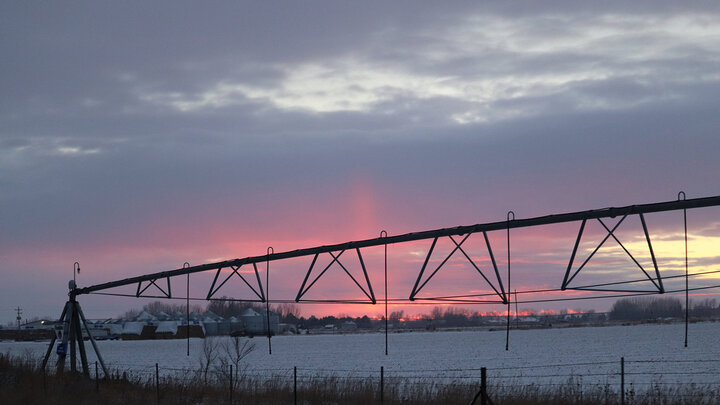Nebraska agriculture is at a crossroads. With the recent USDA Census of Agriculture showing an aging producer population that is continuing to rise, the state faces significant challenges in ensuring its agricultural land and legacy is passed on to the next generation of producers.
The aging producer population rose significantly from 2012 to 2017, with an increase from 50.9% to 60% of producers being over the age of 65 during this time. In 2022, it has remained steady at around 60%.
Despite most producers in Nebraska being over 65 years old, it is estimated that only 50% of operations have up-to-date succession plans in place. A 2017 University of Nebraska-Lincoln survey showed that producers often don’t think about estate and succession planning for various reasons. Some producers never plan to retire, while others do not have a successor. Another reason is that some producers are not ready to give up control of their operation.
Regardless of the reason for not having a plan, it is critical that Nebraska’s farm and ranch population establishes, reviews, and updates their estate plans, regardless of age. While creating an initial plan can seem like a daunting task, the good news is that, once the initial plan is in place, making adjustments and updates over time becomes a much easier and more manageable process.
The first step is to assess the current state of your operation. “Where am I?” Write down an inventory of what you own and outline how things are managed. Next, consider the future. Ask yourself, “Where do I want to be?” Define your goals for the farm or ranch and envision what you want it to look like in the years to come, and after your death.
Once you’ve answered these questions, the final step is to determine, “How do we get there?” This is where professional advisors, such as estate planners, financial experts, and lawyers come into play to help turn your vision into reality. The initial plan may take months to develop. The execution of this plan will take a lifetime.
Keep in mind that estate planning is not a one-time task but a continuous process that should be reviewed and updated regularly to reflect changes in your family, business, and goals over time. Proactive planning is key to ensuring the long-term success and legacy of your operation.

The University of Nebraska–Lincoln offers several resources to assist producers with this process. Learn more about these initiatives on the Center for Agricultural Profitability’s website at cap.unl.edu.
Zoe Ganzman is a 2025 University of Nebraska-Lincoln graduate who earned a Bachelor of Science from the Department of Agricultural Economics. Anastasia Meyer and Jessica Groskopf are extension educators and agricultural economists with the Center for Agricultural Profitability.




